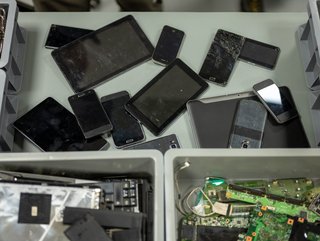Refurbished Smartphones: Sustainable & Popular, say Vodafone

In the ever-evolving landscape of technology, the journey doesn't end when you upgrade your smartphone. Have you ever wondered what happens to your old device? It's not just about plastic bottles and cardboard anymore. With the world's increasing reliance on electronic gadgets, like smartphones, there's a pressing need to consider their afterlife.
Consumer behaviour and environmental impact
European leader in device refurbishment, Recommerce, in collaboration with Vodafone, delved deep into consumer behaviour regarding refurbished smartphones. Unsurprisingly, choosing a refurbished phone over a new one can make a significant environmental impact. According to the research, opting for a refurbished smartphone can slash approximately 50 Kg CO2e over two years compared to purchasing a new one. This choice also accounts for 87% less contribution to climate change and eliminates the necessity to extract 164 kg of raw materials for manufacturing a new device.
The latest report, titled Recommerce Barometer, revealed that environmental concerns are the second most common reason why consumers opt for refurbished gadgets. Launched at the Mobile World Congress 2024 in Barcelona, this annual analysis found that over 52% of Europeans expressed their willingness to purchase a refurbished smartphone in the future. Of those, a staggering 67% cited affordability as their primary motivation.
“We are at the forefront of this shift in consumer behaviour, offering high-quality, refurbished devices that help make a significant environmental impact,” says Augustin Becquet, CEO of Recommerce.
“Our partnership with Vodafone is a testament to our shared vision of a sustainable future, where technology serves as a catalyst for positive change.”
Market trends and future outlook
The International Data Corporation's (IDC) Worldwide Used Smartphone Forecast, 2023–2027 sheds light on the escalating demand for second-hand smartphones. In 2023 alone, the global market for pre-owned devices reached a whopping 309 million units, with projections indicating a continuous surge. By 2027, sales are anticipated to surpass 431 million units. Europe is a significant player in this arena, with more consumers than ever embracing refurbished gadgets.
The Recommerce Barometer's comprehensive study spanned 12 European countries, including France, Belgium, Germany, The Netherlands, Romania, Switzerland, Poland, Italy, Spain, Hungary, and for the first time, Portugal and Ireland. Among these nations, over 43% of individuals have already owned a second-hand smartphone, highlighting the growing acceptance and adoption of refurbished technology.
“Customers are now considering refurbished devices more than ever, so that they can get a great value phone that is better for the planet than buying a new one”, shares Nick Dutch, Vodafone Global Head of Device Lifecycle Services.
“Buying a refurbished phone from Vodafone helps customers get the phone they want for less with added peace of mind.”
The trend towards refurbished smartphones reflects a significant shift in consumer behaviour towards sustainability. With the dual benefits of affordability and environmental responsibility, refurbished gadgets are paving the way for a more sustainable future in the realm of technology.
**************
Make sure you check out the latest industry news and insights at Mobile Magazine and also sign up to our global conference series - Tech & AI LIVE 2024
**************
Mobile Magazine is a BizClik brand
*************






